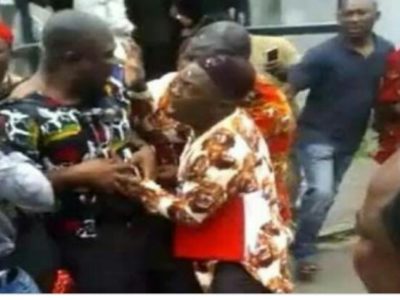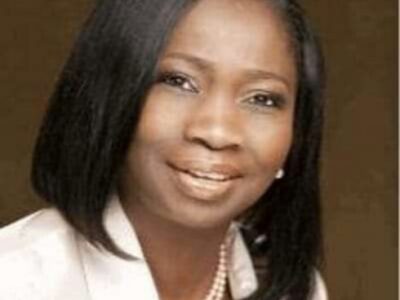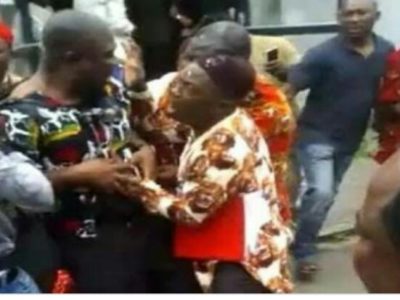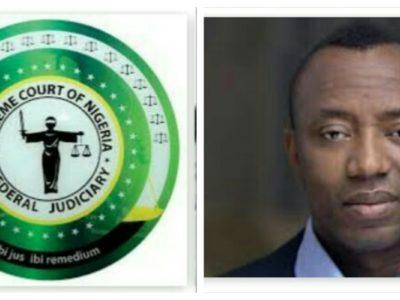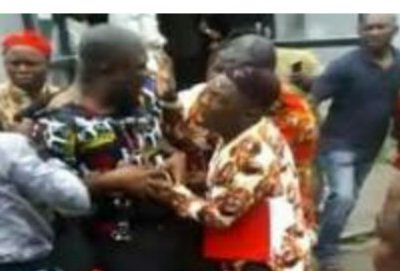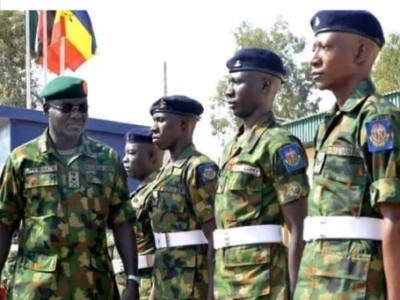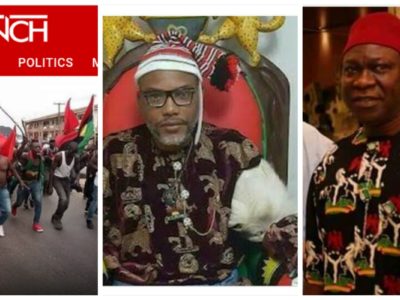One Nigeria: A dream or nightmare? (Part 2) By Dr. Greg (a Rambo)
In part 1 of the series, I established the existence of two main Igbo ideological factions over the existential question of one Nigeria. I refer to the question of one Nigeria as an existential question for the Igbos because the future of the Igbos and their existence as a people depend on how that question is answered.
I also established in part 1 that the relationship between the two factions has been characterized by tension and mutual suspicion, and why. I also posited that the tension between the two has escalated naturally to the point of open hostility as confirmed by the attack on Senator Ekweremadu in Germany recently. We must therefore see the Ekweremadu incident as a turning point or a defining moment in the relationship between the restructuring school and the secessionist school of the Ideological divide.
Another important element in understanding the differences in the respective attitudes and orientations of the two groups is the generational factor. Compared to factors such as education and wealth, the most outstanding difference between the two factions lies in the fact that they belong mostly to different generations and that has influenced how each faction approaches the question.
Whereas, the leaders of the restructuring group are 55 and above, the leaders of the secessionist group are 50 and below. It means that whereas, the restructuring group are made up of people who witnessed the pain and humiliation of the civil war and fear the repeat of war, leaders of the secessionist group did not see the civil war and are not as afraid of war. As is well recognized, knowledge of history has a paradoxical effect on human beings. On the positive side, the knowledge of history equips you with the benefit of hindsight and the wisdom that can come from it. But on the negative side, it burdens you with fear and trepidation leading to inertia and stagnation.
For a man like Nnia Nwodo, for instance, who is over 70, he remembers the civil war, the death, the hunger, the humiliation of the Igbos with the 20-pounds-only policy and the policy of abandoned property. Nwodo will more easily associate secession of the Igbos with war and defeat and pain and suffering. Nnamdi Kanu does not have such ready mental connection between secession and war, and even when he foresees war, he does not have such visceral connection between war and defeat. Now, it is not a question of which of the two has a better judgment over the issue. In fact, both of them are guessing the future. What is important is that they have different perceptions of the future, which motivate them differently.
Also, among the people of Northern Nigeria, they must act based on their sense of the same history. Those who make decisions for the North are similarly old people. They will perceive secession as likely to lead to war that they will win. The Northern leaders faced with Ohaneze leaders will be aggressive, assertive and unyielding, while Ohaneze leaders will be timid and conceding. (But we are still talking about the Igbo-against-Igbo stage of the conflict.)
To further emphasize the importance of generational awareness, I recall the words of Robert Greene: With generational awareness, "we can see what forces shaped our parents' mindset, and then ours in turn, as we have tried to go in different direction. We can make better sense of the underling changes going on in all areas of society and begin to surmise where the world is headed, to anticipate future tends and to understand the role we can play in shaping events."
He continued: To attain generational awareness, "first we must understand the actual profound effect that our generation has on how we view the world, and second we must understand the larger generational patterns that shape history and recognize where our time period fits into the overall scheme."
It is clear that leaders of both factions have not fully considered how the generational factors have influence their approaches to the question. Hence their inability to bridge the gap between them and reconcile to the quicken the date of success. Note: the purpose of the generational analysis I made here is to convince you that the restructuring faction will be defeated by natural forces, and the secessionists will prevail. The only question now is how long the fight between the factions might delay things.
Another factor that should be brought in here is how some external forces might play to the advantage of the Igbos. The idea of one Nigeria where the North dominates everybody has actually not been in the long term interests of the North. That was what led to the current backward state of Nigeria. We can attribute virtually all the negative indicia in Nigeria today to the fact that the North wanted to monopolize power through the subjugation of the Igbos. That's also the reason Nigeria cannot fight insurgency in the northeast. The Nigerian army was designed to prevent a break-up by secession. The army did not prepare to prevent a break-up by invasion. So when Boko Haram invaded Nigeria with plans to carve off a part of its territory, the Nigerian army proved unable. If there had been an army that fully included everybody, it would have been a strong disciplined fighting force that would dispatch Boko Haram within a few days.
Thus, the fear on the part of the Igbos that secession would lead to war that the Igbos would lose is exaggerated. The secessionist group is more forward looking because they embody the spirit of the time. They understand that restructuring is no longer an attractive option because it will continue to place the Igbos under the control of the North which will sabotage or derail the restructuring whenever it suits them.
Restructuring might have been an option 25 years ago when the North still had the initiative. But presently, the North is ravaged by wars and instabilities in multiple fronts. The persecution of the middle belt and the alienation of the Yorubas means that the North will not muster the cohesion it needs to keep Nigeria one by force. But this does not mean that the secessionists should start celebrating. Victory for them is by no means guaranteed. They have not defeated their elder brothers in the restructuring faction. And when they do, they still have to face the challenges of addressing the interest of the 30% of Biafrans who are not Igbos. All that must be done before they can squarely face the North.
In the final part of this series, I will look into how secessionists will have to transition their identity from "Ndi Igbo" to "Ndi Biafra". A minority population of up to 30% is a dynamite in the making and a boiling source of new tensions. Several fundamental issues and roadmap questions must be studied and analyzed.
Dr. Greg
3rd and final part is to follow.
The FBI is not God: Why so much excitement and hysteria over the list?
When they speak of colonial mentality of backward people, they are referring to the tendency of black colonized people to react in self-replicating manner toward the white colonial masters. If the list of 80 fraud-accused people had come from the EFCC, would the reaction have been the same? Yet, there is no basis to consider the FBI perfect. Indeed, there are many things problematic about the FBI list.
First, DPA News has information that it was Obinwanne Okeke, Invictus Obi, who provided the FBI information that lead to the completion of investigation in the last case. He is cooperating with the FBI and we expect that more Nigerians will be exposed. But information from him may be tainted.
Second, most of the 77 Nigerians have never entered the United States. Whatever role they played was done from Nigeria. So, Nigeria has the jurisdiction to try them. If so, they will not be extradited to the US.
Third, most of the people on the list do not know themselves. The pivot of all interactions were the first 2 or 3 people who are based in the US. So, you need to look closely at the conspiracy charges.
Fourth, it is absolutely not in the interest of the US to extradite them to the US. That means most of those men will be entering the US for the first time; and for what purpose? Why spend American tax payers money to fly them to the US, try them in the US, imprison them in the US, and then deport them back to Nigeria.
What if they are granted bail with their passports held by court? That means they are free to marry American women and create immigration problem for the US. What if they are acquitted? There are so many questions. And who told you that FBI is right all the time? Of course your colonial mentality gave you that impression. It is likely that some of these men are innocent. And they are presumed innocent.
The reaction over the FBI list, particularly the reaction from the office of Nigerian Diaspora Commission, is ridiculous and unhelpful.
The Nigerian Diaspora Commission: A disastrous policy failure
In 2001, President Obasanjo, in Atlanta, Georgia, initiated a major Nigerian Diaspora project with a view to tapping into the huge Nigerian Diaspora resources for development of Nigeria. The idea was basic and simple - Nigeria's quest for development, especially in the field of science and technology and human capacity building would require a structured and systemic engagement of Nigerian citizens overseas. Everybody saw this initiative as a brilliant policy move.
Obasanjo's government teamed up with prominent American-based Nigerians such as Emeka Ugwuonye, a Washington DC based lawyer, Bart Amu, an Atlanta based medical doctor, Professor Augustine Esogbuo, etc. to establish the first Nigerian Diaspora Organization (NIDO) for the Americans with offices in the Embassy of Nigeria.
There was so much excitement, especially on the part of Nigerians in the Diaspora who assumed that a new era of strategic engagement with their home country had come. They remembered with envy the strong relationship between Israel and the Diaspora Jews. And thought that President Obasanjo's Diaspora initiative would replicate the Israeli model.
Unfortunately, the Nigerian brand of politics and half measures kicked in and the Diaspora project got caught in the middle. First, there was tension over which Nigerian Consulate in America - Washington DC or Atlanta, would represent the Nigerian Government in the partnership. Second, the conditions for funding of the project were an issue. Further, conflict of interest among the officials of the Diaspora organization rose to problematic levels, as some saw it as opportunity to get positions in the government at home. With such perversive incentive structure, the project was undermined soon after inception.
The only option was for the government to play some stabilizing role. It didn't. Instead, successive administrations in Nigeria developed ambivalence toward the Diaspora project and abandoned the original ideas. Lack of unity and stability within Nigeria further derailed the Diaspora movement.
The question may now be asked: What is the current state of the Nigerian Diaspora project? The honest answer will acknowledge the startling failures. There has been a complete change in the concept. Rather than stable interface with Nigerians overseas giving back to their home country and the Nigerian government enabling them, we have a Diaspora Commission that hates Nigerians overseas and treats them with contempt.
The Diaspora Commission is headed by Mrs. Abike Dabiri, a person of zero credentials on Diaspora matters. Mrs. Dabiri is known best for her unreasonable and provocative statements and hostility toward Nigerian citizens overseas. Her latest was her gratuitous comment ordering Nigerians implicated in a recent FBI list of indicted suspects of online fraud that are in Nigeria to travel to America to surrender themselves.
Mrs. Dabiri's comment is most unfortunate and totally irresponsible. First, the Americans have not yet requested the assistance of Nigerian Government in the matter. It seems Mrs. Dabiri is begging for such a request, even if American Government does not consider it in its interest to bring into America those people just to try them and feed them in prisons for many years.
A proper thing for Mrs. Dabiri, if she was intelligent, would have been for her office to find out how so many Nigerians who have never been to America would have committed crimes in America and be tried in America. Since many of them are based in Nigeria, why can't they be tried in Nigeria with the evidence at the disposal of the FBI? After all, trying them in Nigeria will contribute toward the development of Nigerian legal system, and save the Americans the logistical costs of moving them to America, trying them in America, imprisoning them in America and the cost of deporting them after serving their sentences.
The Diaspora project failed in other ways. Till date, Nigerians overseas still cannot vote in Nigerian elections, and there is no plan to change it. Also, they are not even allowed to return to Nigeria to contest elections because they might have acquired dual citizenship. Nigerians overseas are more alienated and excluded today than ever before.
To the extent that Mrs. Dabiri is the personification of the Nigerian Diaspora policy, the Diaspora project Obasanjo started in 2001 can be declared dead and buried.
One Nigeria: A dream or a nightmare? (Part 1) By Dr. Greg (a Rambo)
Going by history, there is no doubt that since shortly before the civil war, people of Northern Nigeria have wanted one Nigeria. I say shortly before the civil war, because all along up to 1966, it was the Igbos that had wanted one Nigeria the most, and they worked hard to have one Nigeria.
Also, according to history, the Yorubas have been ambivalent toward the concept of one Nigeria. That is to say: the Yorubas are ready for either way - one Nigeria or a divided Nigeria, depending on the circumstances.
Sequel to the events of 1966, leading through the civil war, the Igbos lost faith in one Nigeria. Since the civil war, that faith has never been restored. The government of Nigeria became dominated by the people of Northern Nigeria with a clear policy of deliberate exclusion of the Igbos.
To the Igbos, the notion of one Nigeria has never been a reality since the war. However, the Igbos were never united on what to do since the civil war. To some Igbos, one Nigeria has been a dream that is possible. And to some other Igbos, it has been a scary nightmare. So, the Igbos are divided between those who think that one Nigeria is an affordable possibility worth exploration and support and those who are convinced it is a futile exercise that must be discarded completely and now.
The greatest and hottest undercurrent in Nigeria today or the most strategically significant division in Nigeria today is not between the North and the East or even between the rest of Nigeria and the East. Rather, it is between the two Igbo factions, ie, the Igbos that believe in giving the idea of one Nigeria a chance and those that reject the idea of one Nigeria.
Again, note that no Igbo person believes that we already have a perfect Nigerian union worth preserving. They all agree that Nigeria is sick. The division is between those who believe that the sick country is curable and those who believe it is not curable.
The Igbo political class - State Governors class, Legislators class, the wealthy Igbos who have acquired wealth they want to protect, the intelligentsia who have hope in upward mobility under the current system, tend to believe that Nigeria is curable and they are the ones seeking restructuring of Nigeria. Let's say that this group of Igbos are represented by Senator Ike Ekweremadu. (This is just to help you understand the argument).
Then you have the other group of Igbos who believe that Nigeria is incurable and there is no need to try to give it any further trial. This group are made up of mostly the youth, those who have been disenfranchised, the bottom of the middle class Igbos and the lower class. This group is agitated, mobile and aggressive and you see them in large numbers in the Diaspora, which comprises mostly of those forced out of Nigeria by the inequities inherent in the Nigeria that exists. This group does not believe in restructuring. It wants secession. This group is represented by IPOB.
We view this division between the two Igbo ideological groups, as the critical and most decisive division today on the question of one Nigeria. As long as these two groups cannot resolve their differences and come together, neither of them can succeed.
Thus, there will be the initial or preliminary war. That will be the war between the two Igbo factions described above. This doesn't have to be a shooting war. But that war must be fought and won before there can ever be the main war between Nigeria and the Igbos.
This first or initial war has started. What happened in Germany with Ekweremadu is a flashpoint in that war. What happened in Germany may appear to some as a mere coincidence. But viewed closely, it has been in the making over the past 6 years - the discontent has simmered and we are at the moment when a major crisis is about to crest. Unfortunately, Ekweremadu, Nnia Nwodo and the Governors are misreading what is happening. They are viewing these events through the lens of yesterday.
This writer will forecast that in the emerging war between the two Igbo factions, those who believe in restructuring Nigeria will lose and those who believe in secession will win. It may take time, but the group represented by the youths will win. (This doesn't mean they win the ultimate war)
The restructuring faction will lose because two factors work against them. First, the leaders of the restructuring faction are not trusted by those that are neutral. They comprise a greedy and exploitative and corrupt class who have not shown much interest in the welfare of the average Igbo person. They are also perceived as proxy for the North. Their message is perceived as self-serving, designed for self preservation. Secondly, the failure of the people of the North to make any concessions to the Igbos will further lead to the defeat of the restructuring faction.
To buttress the point above, the fact that the North is refusing to concede the presidency of Nigeria to the Igbos, a huge strategic mistake by the North, will further weaken the position of restructuring faction and play straight into the hands of the secessionists.
(This analysis will continue in two more parts)
What happened to the rape case against Pastor Fatoyinbo?
The complaint of rape made by Mrs. Busola Dakolo against Pastor Biodun Fatoyinbo, the senior pastor at the COZA faith ministry, has probably gone the way of most cases against the rich and powerful in Nigeria. That is to say, the police killed the case in order to protect the rich and a paying client of the police.
Otherwise, how could the police declare an investigation inconclusive simply because the suspect that is within their reach refused to answer police invitation? By so doing, the police can be taken as saying that the investigation had gone cold, that they had followed all the leads and got nowhere. But if they have not been able to interview the suspect, they have failed to follow the most probative lead.
As reported in the Premium Times, the police "set up the five-member panel to investigate the rape allegation leveled against him [Fatoyinbo] by Busola, wife of popular singer, Timi Dakolo. The embattled cleric said he did not appear before the panel because it appeared biased.
"He also added that he was advised by his lawyers not to appear before the panel because it was prejudiced and may not conduct an impartial session."
This case has been marked by a cruel irony and deceit. First, when the lady reported that the powerful, rich and well connected pastor raped her 20 years ago when she was 17 years old, the police failed to investigate the complaint and no reason was given for turning a cold shoulder to the lady. Frustrated by the indifference and believing that the police were compromised, the lady took her story to the press.
Mrs. Dakolo's media interview that alleged rape against Pastor Fatoyinbo became a sensation. A country that normally ignored such allegation and blamed the victim suddenly came alive with unprecedented outrage against a suspected rapist. The spontaneous reaction took everybody by surprise. Human rights and women groups protested with placards in front of COZA churches. The pastor promptly placed himself on leave while he continued to deny the allegation. There was hope that this case might change for good and better the way Nigerian address cases of rape.
Like a typical Nigerian rich man accused of some crime, Pastor Fatoyinbo turned the police against the accuser. He filed a petition with the police accusing Mrs. Dakolo and her husband of defamation. As typical of the Nigerian police, the police ignored the rape allegations and went after the woman and her husband for defamation. In a clearly calculated effort to frustrate and intimidate, the police issued their infamous invitation letters trying to cause the couple to leave their Lagos abode and travel to Abuja to be questioned. As the couple chalkenged this move, the police staged a shameful attempt to arrest them.
There was a public outcry as many questioned the motive of the police. This embarrassed the Inspector General of the Police (IGP), who directed that both the rape and defamation allegations be investigated in Lagos.
While the Dakolos went to meet with the police, as requested, Pastor Fatoyinbo refused to go. Normally when a complainant fails to meet the police for further investigation into his complaint, the police could treat that as a sign that there is no merit in the complaint. However, when a suspect fails to honor police invitation, the effect is the opposite. The police seemed to have reversed this neat logic in the case of the Dakolos against Pastor Fatoyinbo, by declaring the investigation into the two cases inconclusive just because the suspect (Fatoyinbo) refused to honor the police.
As sad and unfortunate as it is, at least the Dakolos managed to have escaped what was to be a brutal police persecution through the attempt to ignore their rape allegations and prosecute them for defamation in Abuja. Unfortunately, she will not be able to pursue a civil remedy against the pastor because the incident occurred 20 years ago, while a civil cause of action expires after six years from the date of the incident.
For the alleged victim of rape, it is a painful goodbye to justice. For thousands of rape victims ignored by the Nigerian justice, they still have to wait for another occasion when the country's law enforcement will step up the fight against rape and crimes of sexual violence.
Like this post/article? Add your friends to DPA today.
An aggrieved customer could not take it silently
Tesha P Adaeze Nwanma took to Facebook to protest the abuse she suffered in the hands of The Young Shall Grow Logistics Company. The details of her grievance are contained in her public letter to The Young. She wrote:
"Dear 'The Young Shall Grow' Couriers and Logistics,
I am writing this post from a place of anger and so much pain!
I am so angry, I am so pissed , I have cried and I am still raging!
How can your company be so wicked for no reason!
You charge so much for a waybill, a thing as little as a jersey, you charge 2k 3k, as if that's not enough, you will still collect another 500naira from the customer!
I get this calls with customers asking me, 'Why are they collecting another 500 from me' and I will just looking plain stupid over the phone!
When you register these things, they won't give you a waybill number, rather when it gets there, they either send a text or call the person
Now the latest issues I am having now, is that they no longer call the customers
I am having issues in PH, Abuja and Ebonyi.... What's my crime, I used The Young Logistics
Yesterday, I asked one of my customers to go to their office at PH, he was embarrassed, telling him to go and wait for a call, after some drama they had to start searching around for the stuff, after which they still asked him for another 500naira , which I had to transfer to the lady before she accepted to release it
This is frustrating, I am frustrated!
I have received insults, I have been called a thief all because I can't give a reasonable explanation as to why The Young logistics are this mean!
Those of you doing this things, you will reap the fruits of your labours and wickedness in a triple fold!
Even though I have begged and begged and begged my biz partner to stop using the young, but it all falls on deaf ears, at the end, I am the one getting all the heat, insults and blames
The many times that I have used peace mass logistics (despite all the negative things that surrounds that company) I have never had an issue one bit!
Not even one issue, they don't charge much, they will call you and give you your stuff jeje, without asking for money and they won't give you any single stress
I am not happy at all
I am not one bit!
The young had shown me pepper
I am only paying that I come out of this mess, heaven knows that even if I am crazy, I will never go near The Young Again!
Never!"
The case of Sowore and the lingering question of a Nigerian revolution.
Update!
Two days after Justice Taiwo O. Taiwo of the Federal High Court, Abuja, granted an order for a 45-day pre-indictment detention of Sowore under the Nigeria's terrorism laws, Sowore's lawyer, Mr. Falana, filed an application to vacate the order. That set a fairly predictable direction for the case.
The application to vacate had the strategic relevance of forcing the agency that arrested Sowore, the DSS, to show its hands more fully. That is, the application alleged that there was no justifiable basis in law to detain Sowore. In a response to such application, the DSS would be forced to show that there was a basis. And this is where a sound knowledge of pure and applied jurisprudence will be needed for one to understand the game.
Being a pre-indictment proceeding, what is the DSS required to prove? What is the requisite standard of proof at this stage of the case? Unlike where an indictment has been filed, the standard of proof at this stage is for the DSS to show that there is a reasonable suspicion.
Let me take you back to earlier lessons we gave in the forum. In a standard criminal case, you will go through three different standards of establishing the merits of formal constraints imposed on a person by law.
At the initial stage , there is the standard to be met in order for a person to be arrested. That is known as reasonable suspicion. Once a police officer has a reasonable suspicion that you committed a crime, he can arrest you. Reasonable suspicion is the standard.
After you have been arrested and charged; the standard required for you to be charged and for the court to accept to try you is known as prima facie case. Once the prosecutor can show that there is a prima facie case against you, the court will proceed to trial.
And finally, for the court to find you guilty, there is the final standard known as proof beyond reasonable doubt.
So, in Sowore's case, the suspect has not being charged. So, the standard is low - reasonable suspicion. And this is where Nigerian legal system shows it is still backward. By not having charged him, all that they are required to do is to show they have reasonable suspicion, which is a highly subjective test.
It was therefore possible for the DSS to come up with unsubstantiated allegations of Sowore collecting millions of dollars to topple the government. Those allegations are most likely untrue. But they are not required to prove it is true because we are still at the level of reasonable suspicion. All DSS needs to do now is to make any allegation they like. It is impossible for the Judge to say that a suspicion is unreasonable. So, we can conclude that the application to vacate the detention order will fail.
When the case goes all the way to the point where Sowore is charged, then they will be required to prove that there is something worth pursuing. The DSS will fail to prove the case in the end, but the damage would have been done to Sowore.
Note: Rambo is aware that a parallel proceeding was filed in Lagos and a Lagos court may have issued an order favorable to Sowore. We believe that having conflicting orders will only give the DSS the excuse not to obey any order it does not like by claiming it was confused by the orders.
The attack on Ekweremadu, truly a wake-up call
The issue at stake is actually about the heart and soul of the agitation for justice and equivalent for the Igbos, whether such agitation takes the form of sovereignty or other forms. I said whether sovereignty or other forms because there are still other options including reviving the Aburi Accord.
But we need not address the final status yet. We just need a roadmap. Without any roadmap yet, it will be difficult to jump to the final status question.
Who should lead the Igbos on the National identity quest? This is the question the Igbos should answer. What role will the Igbo elites play? Are they going to stand on the sidelines and watch in concealed panic as their less informed, and yet the most deprived, brothers seek to provide leadership?
All over the world, there are Igbo medical doctors, Igbo lawyers, Igbo scientists, Igbo academia, etc in top positions in their fields. Where are those Igbos? They must not sit back and allow thugs and rabble rousers to lead the Igbo National identity project.
Unless the Igbos are led by their best hands, the Igbos will not come out with the best results. Instead, there will be crisis and failure of the dreams.
What happened to Ekweremadu is a clear wake-up call. The Igbos could do much better than that. The mob cannot lead the Igbos. But it is difficult to blame the mob or to stop it from assuming leadership if the Igbo elites continue to stay on the sidelines.
It is quite shocking watching the reactions of the Igbos over what happened to Ekweremadu in Germany. More than 90% of the best educated Igbos and their professional class all over the world condemn the incident, while the less educated Igbos and the less privileged jubilate. It was also noticeable that those that support the assault were to derive support and validation from the likes of Femi Fani-Kayode, rather than the likes of Professor Charles Soludo. This means that the Igbo elites are not engaged. They left leadership to the mobs and rabble rousers.
The fact is that the Igbo elite do not have a choice. Their indifference is dangerous - dangerous to the Igbo cause and dangerous to the elites themselves. As the mob leaders turned on Ekweremadu, they will turn on anyone else they believe is more privileged. As they blamed a Senator for not stopping the Fulani herdsmen attacks, they also will blame the lawyer and the doctor for not condemning those attacks. When they are done attacking the Senators, they will continue indefinitely to attack anyone perceived and presumed to be ahead; only because he supported the enemies of the Igbos.
It is a wake-up call for the Igbo elite to step forward to avoid a looming disaster.
Evidence shown of the mistrust of the Nigerian military
Nigerian military has been moving heavy military equipment from Enugu across several Eastern states. Such movement triggered fears and concerns, as people wondered what it meant.
Naturally, the Nigerian civilians associate with the Nigerian military atrocities against the civilians. 'Operation Python Dance', an euphemism for a rootless crackdown on presumed members of Indigenous People of Biafra in 2017, is fresh on people's minds.
Apart from that shameful attack on unarmed civilians, Nigerian soldiers have on countless occasions waged wars against totally unarmed civilians. And yet, this is an army that had price incompetent in fighting against an insurgency in the Eastern part of the country.
On this occasion of an apparent movement for standard military exercise, the military was forced to make statements calming the aggravated population down.
As the Punch reported on this matter, "the Nigerian Army has urged South-East and Cross River State residents not to panic over the massive movement of troops, military vehicles and weapons as it holds a week-long military exercise."
The Deputy Director, Army Public Relations 82 Division, Col. Aliyu Yusuf, was reported to have made an appeal in a statement issued to the News Agency of Nigeria on Saturday in Enugu. He said the movement of weapons and equipments is for a military exercise known as the 2019 Combat Proficiency Competition for Formations under the 82 Division of the Nigerian Army".
The 82 Division of the Nigerian Army is based in Enugu.
The questions emanating from this are the application of the mistrust between the general population and the Nigerian Armed Forces. And what is the long-term strategic impact of this on the Nigerian defense capabilities? What war is the army training against in the Eastern part of Nigeria, when the Northeast remains undefended and vulnerable to insurgency? Shouldn't the army rather focus on defeating the insurgency?
The IPOB attack on Ekweremadu is a big deal.
The DPA News analysts are wondering what to make of the widely reported assault on Senator Ike Ekweremadu yesterday in Nurnberg, located a few miles Southeast of the famous city of Nuremberg, in Germany.
Senator Ekweremadu, one of the most successful Igbo politicians in the modern times, had been attending an Igbo diaspora cultural event in Germany when the incident occurred. He had been invited along with the leader of the Igbo social cultural group, known as Ohaneze, Chief John Nnia Nwodo. For some unknown reason, Nwodo avoided the event.
At the venue of the diaspora event, a group of men, apparently members of IPOB arrived at the event and disrupted the proceedings. In the process, they manhandled Ekweremadu, as was clearly captured on a video clip that has gone viral.
The grievance of the unruly mob was not clearly articulated. But it had to do with killings of civilians in the Igbo areas in Nigeria by the Nigerian military. The group seems to believe that the Igbo politicians have not been doing enough to stop these killings. This is a fairly legitimate grievance, and quite justified.
However, the choice of Ekweremadu and the method of expressing this grievance have raised multi-faceted questions about the Igbo agitations for sovereignty, the IPOB, and actually the position of the top Igbo political elite in that agitation.
IKE EKWEREMADU:
Using Ekweremadu as a representative of the top Igbo political elite, it is clear that there is a serious disconnect, characterized by tension and hostility, between members of IPOB and the Igbo political elite. This is not the first time, the IPOB members have attacked Igbo political figures, ranging from some Governors to even the leadership of Ohaneze. If Chief Nwodo had dared to attend the diaspora events, he would likely have been assaulted as well.
As seen from his statement after the event, Ekweremadu was shocked and embarrassed by what happened. To have been humiliated to a point of being rescued from an Igbo group is a terrible situation for him as an Igbo leader. It is either that IPOB is fundamentally wrong or that Ekweremadu failed in some serious ways as a leader. Or maybe both. And if Ekweremadu failed, then most other Igbo politicians failed.
IPOB AND ITS METHOD:
Ekweremadu apparently sees IPOB as Nnamdi Kanu. Hence, he spoke of his support for the process that led to the grant of bail to Nnamdi Kanu's bail through the instrumentality of another Igbo Senator.
The personification of IPOB as Nnamdi Kanu, is the worst setback for IPOB, as would be the case with any other such organization. Naturally, such personification will tend to dwarf the organization and frustrate every potential for success.
IPOB's tendency to use force, threats and intimidation is not only a sign, but evidence, of a strategic weakness. It reflects an admission on its part that it has not been able to persuade the people through logic and reason. It also reflects a belief on the part of IPOB that majority of the Igbos cannot be trusted to form objective and logical opinion about the IPOB, that they need to be somehow forced into the right place. That is a fundamental weakness.
BIAFRAN SOVEREIGNTY:
With the continued tendency toward failure of the Nigerian State, the objective conditions for the breakup of the present Nigeria continue to coagulate toward fulfilment. Yet, it will be hopelessly foolish for IPOB to expect to succeed in leading that process without the support of the Igbo political elite, the likes of Ekweremadu. If it were that IPOB was having a problem with one of few members of such elite, it will be no problem. But to seek to antagonize the entire class of Igbo elite is a mission dead on takeoff.
The irony of what happened to Ekweremadu is palpable and that was the reason the story went viral immediately. Those members of the Igbo diaspora in Germany, who invited Ekweremadu did not wish for him to be assaulted by a much fewer group of people. What about the interest of the larger group that invited Ekweremadu? Clearly, their interest is different than those of the IPOB? Igbo leaders like Ekweremadu may not be able to publicly identify with Igbos in diaspora for fear of being assaulted by the IPOB.
The implication is chilling. It means that IPOB members are now the enemy of other Igbos. And it means that whenever an Igbo group in diaspora is organizing events, they must either invite the police to keep IPOB members from such events or simply appoint some of their members to knock sense into any IPOB member that comes to disrupt the proceedings.
What happened in Nurnberg should better be an isolated incident that does not represent IPOB. Otherwise, expect other countries to join in outlawing IPOB.

